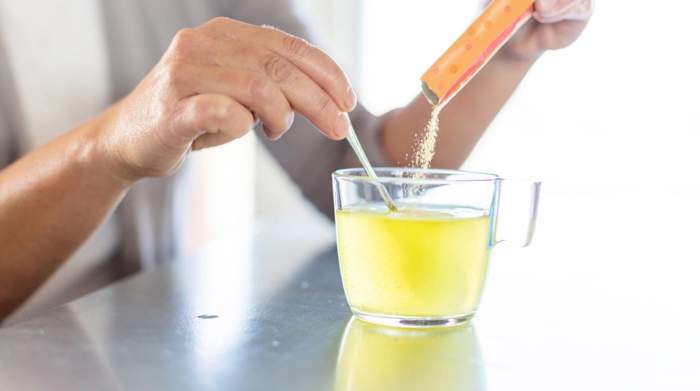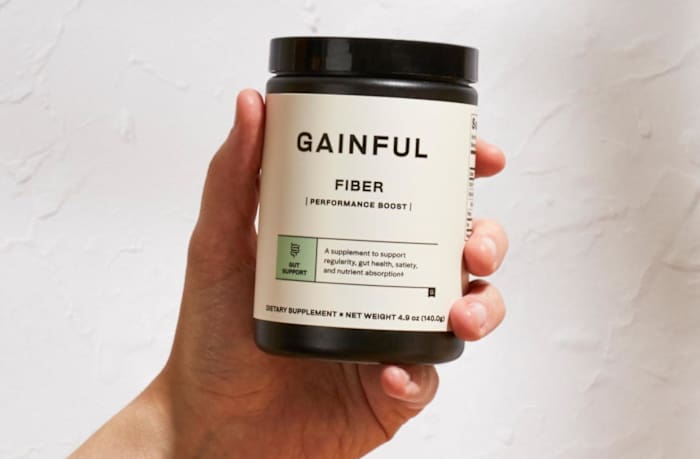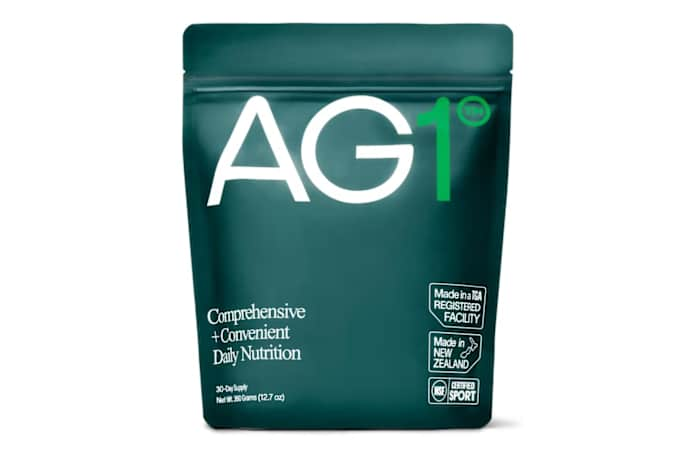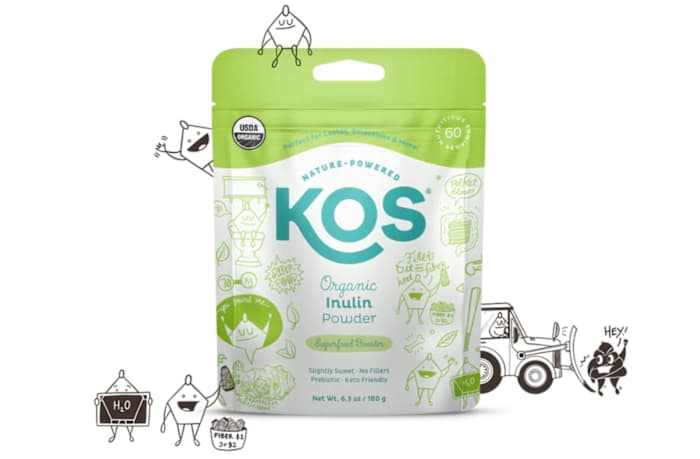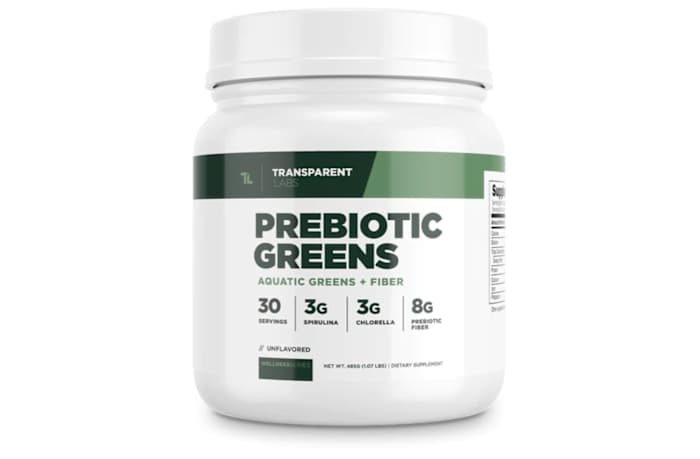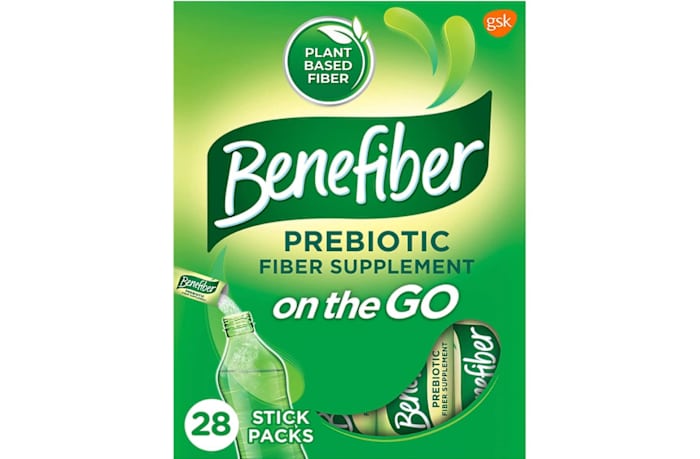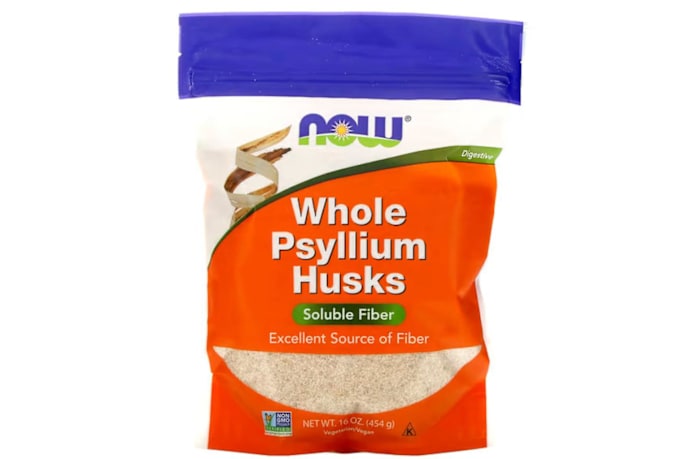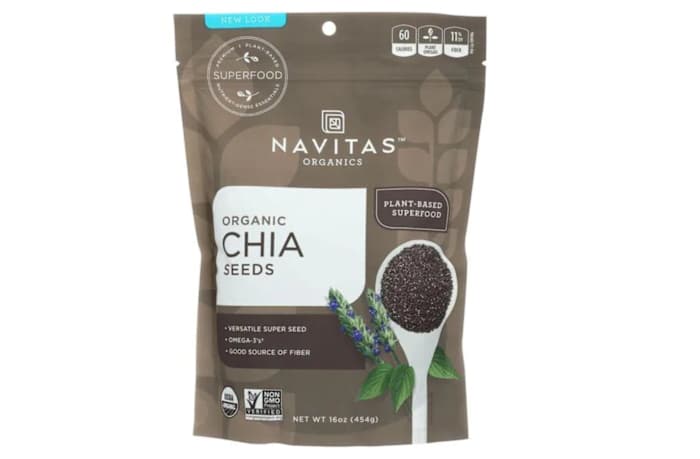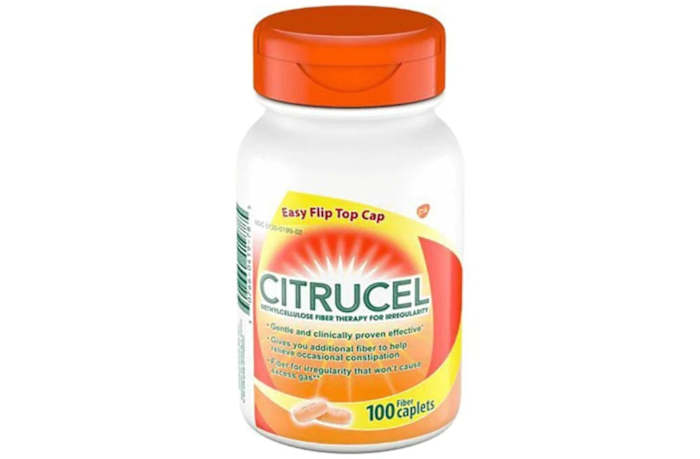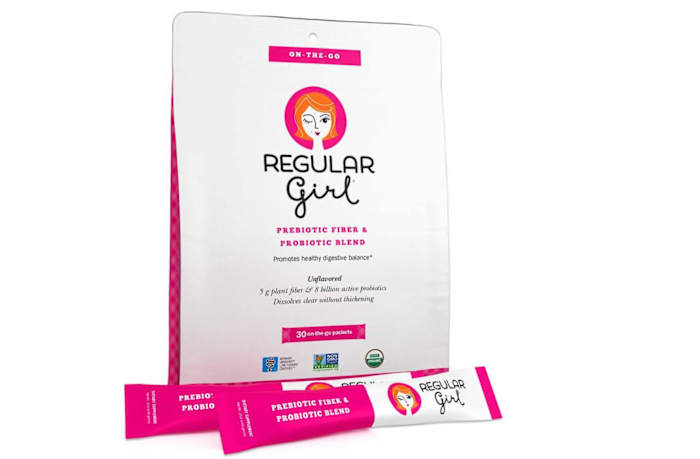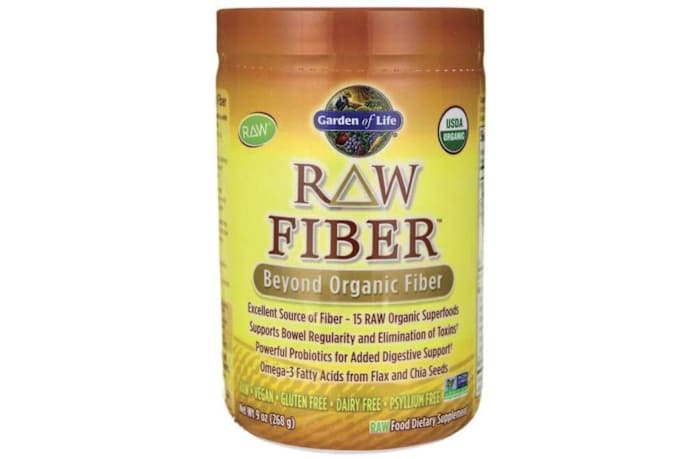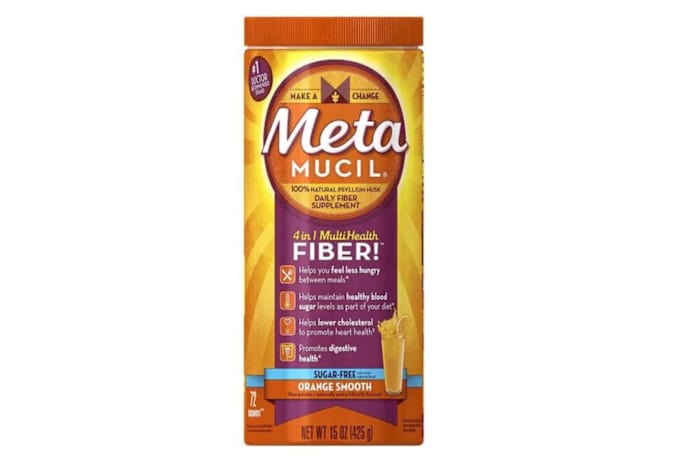The products featured in this article have been independently reviewed. When you buy something through the retail links on this page, we may earn commission at no cost to you, the reader. Sports Illustrated editorial staff are not involved in the creation of this content. Learn more here.
You’ve likely been told to add more fiber to your diet, especially if you’ve struggled with constipation or diarrhea. Fiber is found in many dietary sources including whole grains, legumes, fruits, vegetables and nuts. While it would be ideal to obtain all of your daily required fiber from food sources, this is often hard to do. Thankfully, there are many different kinds of fiber supplements available on the market for you to choose from.
This article will explore the health benefits of fiber, why fiber supplements are beneficial and how the supplements should be taken. Our top picks for the best fiber supplements of 2024 are provided, as well as a comprehensive guide for choosing the best one for you.
This content is meant to be informative, but should not be taken as medical advice. It is not intended for use as diagnosis, prevention or treatment of health problems. Always speak with your doctor before starting any new supplement or exercise regimen.
Our Picks for the Best Fiber Supplement of 2024:
- Best Personalized Fiber Supplement: Gainful Fiber Performance Boost
- Best Fiber Supplement with Vitamins: Athletic Greens
- Best Budget Fiber Supplement: KOS Organic Inulin Powder
- Best Organic Fiber Supplement: Transparent Labs Prebiotic Greens
- Best On the Go Fiber Supplement: Benefiber On the Go
- Best Fiber Supplement for IBS: NOW Psyllium Husk Powder
- Best Soluble Fiber Supplement: Gainful Fiber Performance Boost
- Best Fiber Supplement for Weight Loss: Athletic Greens
- Best Fiber Supplement for Constipation: Navitas Chia Seeds
- Best Fiber Supplement for Men: Citrucel
- Best Fiber Supplement for Women: Regular Girl Prebiotic Fiber & Probiotic Supplement
- Best Fiber Supplement for Diverticulosis: Garden of Life Raw Organic Fiber
- Best Fiber Supplement for Hemorrhoids: Metamucil
Best Personalized Fiber Supplement: Gainful Fiber Performance Boost
Get 30% Off Gainful with code SAVE30
Specs
- Grams of fiber per serving: Five
- Serving size: One scoop (10 grams)
- Servings per container: 14
- Price: $22 ($1.57 per serving)
- Soluble or insoluble: Both
- Source of fiber: Not listed
- Certifications: N/A
Gainful is designed to provide people with a customized order of dietary supplements. Users will start by taking a quiz about their diet, exercise habits, body composition and goals, and will receive a list of recommended supplements, with some tailored specifically to them, from Gainful.
Gainful's fiber supplement recipe does not change from person to person—it provides five grams of fiber per serving, via oat bran. It mixes into any beverage and has a "mild, pleasant taste," according to the brand. Instructions recommend that users start with one serving per day, and work up to as many as four servings daily.
Pros:
- Customizable formula based on your goals
- Contains five grams of soluble and insoluble fiber
Cons:
- Only 14 servings per container
Best Fiber Supplement with Vitamins: Athletic Greens
Specs
- Grams of fiber per serving: Two
- Serving size: One scoop (12 grams)
- Servings per container: 30
- Price: $79 ($2.63 per serving)
- Source of fiber: Many; full list on the AG website
- Certifications: GMO-free, no artificial flavors, colors or sweeteners
Athletic Greens is way more than just a fiber supplement. It's a greens powder that's designed to fill myriad nutritional gaps in the average person's diet. The nutrition facts show that it contains far more than the required daily value of vitamin C, vitamin A, vitamin E, riboflavin and more; plus healthy doses of many other nutrients as well.
While it doesn't contain a huge dose of fiber, it does offer two grams in addition to all that green goodness. It's designed to be mixed into water—reviewers have praised its slightly sweet, pineapple-y taste.
Pros:
- 75 total ingredients
- NSF Certified Sport
- Contains prebiotics and probiotics for gut support
Cons:
- Only two grams of fiber
Best Budget Fiber Supplement: KOS Organic Inulin Powder
Specs:
- Grams of fiber per serving: Three
- Serving size: One scoop (three grams)
- Servings per container: 112
- Price: $18.04 ($0.16 per serving)
- Soluble or insoluble: Soluble
- Source of fiber: Agave inulin
- Certifications: Produced in a GMP-certified facility, USDA Organic
KOS Organic Inulin Powder is 100 percent agave inulin, a soluble fiber derived from the blue agave plant, native to Mexico. Agave inulin is a good source of fiber with potential gut health benefits that are a far cry from the misery you might feel after over-indulging in a certain other agave derivative (ahem, tequila). Agave inulin, like other types of inulin (a soluble fiber found in plants like chicory root and asparagus), is not digested in the small intestine. Instead, inulin travels further to the large intestine where it’s fermented by bacteria, leading to the potential gut health benefits, including an increase in stool frequency. As a prebiotic fiber, inulin also provides a fuel source for healthy bacteria, helping promote a more diverse gut microbiome.
The best part: the plant-based KOS inulin powder packs a respectable three grams of fiber from agave inulin in one small three-gram scoop. At a cost of just $0.16 per serving, this powder is one of the most affordable fiber supplements on our list. And it still has all the reassurances of being made in a GMP-certified facility, which are facilities ensuring quality manufacturing standards that prevent contamination. In terms of word of mouth, too, KOS has solid backing: More than 1,000 Amazon purchasers gave the powder 5/5 stars, with 5/5- and 4/5-star reviews accounting for 86 percent of all feedback (at the time of writing).
Pros:
- Unflavored for easy mixing in smoothies and shakes
- Vegan, dairy-free, soy-free, gluten-free and GMO-free
- Manufactured in a cGMP-certified facility for quality control
- Contains 100 percent agave inulin for prebiotic gut health benefits
Cons:
- More research needed on the benefits of inulin for digestive health
Best Organic Fiber Supplement: Transparent Labs Prebiotic Greens
Specs:
- Grams of fiber per serving: Four
- Serving size: One scoop (16.17 grams)
- Servings per container: 30
- Price: $45.99 ($1.53 per serving)
- Soluble or insoluble: Both
- Source of fiber: Acacia and Jerusalem artichoke
- Certifications: None listed
The fiber source in Transparents Lab Prebiotic Greens is organic acacia fiber and organic Jerusalem artichoke fiber, both shown to be gut-beneficial prebiotic fibers thanks to their fermentability. Benefits of introducing prebiotic dietary fiber into the gut can include improved structural integrity of the gastrointestinal walls (to prevent leaky gut), allergy prevention and improved immunity.
With an organic fiber supplement like Transparent Labs Prebiotic Greens, you get much more than just a healthy dose of fiber. You also get immune-boosting ingredients like spirulina, a blue-green algae that’s tied to myriad health benefits, from treating muscle cramps to preventing cancer, according to a 2022 study published in the Journal of the American Nutrition Association.
What you won’t find in this greens powder: artificial sweeteners, colors, preservatives or animal-derivative products. Several reviewers mention how easily Prebiotic Greens mixes in with smoothies and other beverages without altering the flavor of their drinks, making it a palatable choice for those who want a good tasting greens powder.
Pros:
- Packed with prebiotics for gut health benefits
- Immune-boosting algaes included in the formula
- Free of artificial sweeteners, preservatives or colors
Cons:
- Among the pricier supplements per serving
- Not a good match for those who want a standalone fiber supplement
Best On the Go Fiber Supplement: Benefiber On the Go
Specs:
- Grams of fiber per serving: Three
- Serving size: One stick pack (four grams)
- Servings per container: 28
- Price: $16.19 ($0.58 per serving)
- Soluble or insoluble: Soluble
- Source of fiber: Wheat dextrin
- Certifications: Gluten-free
Travel-induced constipation can be caused by changes in diet and routine while away from home. But rather than packing a bulky canister of fiber to combat constipation, it’s much simpler to have single portions on hand. That’s why we chose Benefiber On the Go as the best on-the-go fiber supplement.
The flavorless, sugar-free, pre-proportioned travel packs can be mixed with four to eight ounces of your soft food or beverage of choice. The brand’s wheat dextrin fiber source has the added benefit of prebiotics, which studies show can positively affect the gut’s biome.
You will pay a slight premium per serving for the fiber powder’s convenient, on-the-go packaging; however, on the whole, Benefiber is one of the more affordable fiber supplement brands.
Pros:
- Sugar-free and flavorless for easy mixing
- Budget-friendly
- Gluten-free
- Convenient on-the-go packaging for travel
Cons:
- Some reviewers don’t like the taste
Best Fiber Supplement for IBS: NOW Psyllium Husk Powder
Specs
- Grams of fiber per serving: Seven
- Serving Size: Two level tablespoons
- Servings per container: 45
- Price: $10.69 ($0.24 per serving)
- Soluble or insoluble: Soluble
- Source of fiber: Psyllium husks
- Certifications: Vegetarian, non-GMO, gluten-free
Psyllium comes from a shrub-like herb that’s common in India. The psyllium plant produces many tiny seeds that are used to make psyllium husk, the main ingredient in this supplement. NOW Psyllium Husk Powder is the best fiber powder because it offers an excellent source of soluble fiber that works in the body by attracting water, removing excess fluid and improving diarrhea. Psyllium soaks up a large amount of water within the digestive tract, which makes stool more firm and slows down excretion.
Irritable bowel syndrome (IBS) involves a group of gastrointestinal symptoms including gas, abdominal pain, cramps and alternating bouts of constipation and diarrhea. Consuming a high-fiber diet is a well-known treatment option for IBS symptoms, so a fiber supplement is often recommended for people suffering from IBS.
Studies have shown that fiber supplementation with psyllium is effective in improving symptoms of irritable bowel syndrome (IBS). Because IBS involves several digestive symptoms and alternating constipation and diarrhea, this supplement can be used to help improve the regularity and texture of bowel movements. An additional health benefit of this supplement is its effects on cholesterol. Psyllium husks help to lower LDL cholesterol levels, which decreases the risk for developing heart disease.
Now Psyllium Husk Powder comes in (you guessed it) powder form, with seven grams of fiber per serving. It should be mixed into water or juice and consumed immediately. It’s very important to make sure that you drink enough water and other fluids throughout the day to prevent adverse gastrointestinal effects from this supplement, such as bloating or gas.
Pros:
- Powder supplement designed to help with regularity
- Seven grams of fiber with every serving
Cons:
- Must drink fluids consistently after taking to avoid gastric distress
Best Soluble Fiber Supplement: Gainful Fiber Performance Boost
Get 30% Off Gainful with code SAVE30
Specs
- Grams of fiber per serving: Five
- Serving size: One scoop (10 grams)
- Servings per container: 14
- Price: $22 ($1.57 per serving)
- Soluble or insoluble: Both
- Source of fiber: Not listed
- Certifications: N/A
There are two types of fiber: soluble and insoluble. Soluble fiber dissolves in water and turns into a gel-like substance during digestion. Insoluble fiber does not dissolve and adds bulk to stool. Both can help support gut health.
Gainful Fiber Performance Boost is one of the best soluble fiber supplements available, offering five grams of fiber per serving. Three of the five grams are soluble fiber. It's offered as a powder, which can be mixed with almost any beverage. While it's not flavored, it does have a "mild, pleasant taste," according to the brand's website.
Gainful aims to help personalize nutritional intake by way of a quiz. Users will start by taking a quiz, which asks about their body composition, dietary intake, athletic goals, sweat output and more. The brand then suggests supplements tailored to each person's lifestyle and goals.
This supplement also contains two grams of protein and 1.2 milligrams of iron.
Pros:
- Contains three grams of soluble fiber to help keep you regular
- Also contains two grams of protein and 1.2 milligrams of iron
Cons:
- Elevated cost per serving
- Only 14 servings per container
Best Fiber Supplement for Weight Loss: Athletic Greens
Specs
- Grams of fiber per serving: Two
- Serving size: One scoop (12 grams)
- Servings per container: 30
- Price: $79 ($2.63 per serving)
- Source of fiber: Many; full list on the AG website
- Certifications: GMO-free, no artificial flavors, colors or sweeteners
While a fiber supplement is unlikely to cause significant weight loss on its own, adequate fiber intake has been shown to have some correlation with weight loss, in people on calorie-restricted diets.
People looking for a supplement for weight loss may be interested in Athletic Greens. While it has a relatively small amount of fiber in each dose, it does offer a wide array of other vitamins and minerals, plus probiotics and prebiotics. Together, these nutrients may help support a healthy digestive system and promote satiety, which can help some people maintain weight or lose small amounts.
Pros:
- Made to support the immune system
- Contains superfoods that contain prebiotics and probiotics
- Produced in TGA certified facility
Cons:
- High price per serving
Best Fiber Supplement for Constipation: Navitas Chia Seeds
Specs
- Grams of fiber per serving: Three
- Serving size: One tablespoon (12 grams)
- Servings per container: 19
- Price: $12.49 ($0.65 per serving)
- Soluble or insoluble: Both
- Source of fiber: Chia seeds
- Certifications: Certified Organic, vegan, non-GMO, Kosher, paleo, keto, gluten-free
Chia seeds were a staple diet item in many ancient cultures and for good reason. They are high in fiber and contain many other important nutrients for health, including omega fats, protein and antioxidants. They include so many nutrients that they’re sometimes even called a “superfood.”
A one ounce serving of chia seeds contains nearly half of the daily recommended amount of fiber, so this supplement is a great option if you struggle to consume enough fiber. We also found it to be one of the best supplements for relieving constipation. It contains only four grams of fat and five grams of carbs per serving, so this is a great low-calorie supplement option if you are trying to lose weight.
While chia seeds are generally safe for most people to consume, there are a few instances where they may not be the best fiber option. If you are taking blood thinners, the omega fats in the chia seeds may interact with your medication, causing an increased risk of bleeding. Be sure to check with your healthcare provider before consuming this supplement.
Navitas Chia Seeds has a subtle nutty flavor that makes it a good addition to many different types of food. It also has a poppyseed-like texture that adds a really nice crunch to your snacks. The best ways to use this supplement are to sprinkle them in oatmeal or yogurt, try them in a smoothie or soak them in liquid to make chia pudding.
Related Post: The Best Chia Seeds
Pros:
- Chia seeds contain extra nutrients, like protein, omega fats and antioxidants
- Contains both soluble and insoluble fiber to aid in digestion
Cons:
- Certain medications may interact with chia seeds
Best Fiber Supplement for Men: Citrucel
Specs
- Grams of fiber per serving: 0.5
- Serving size: One tablet
- Servings per container: 100
- Price: $20.69 ($0.21 per serving)
- Soluble or insoluble: Soluble
- Source of fiber: Methylcellulose
- Certifications: None listed
Looking for the best fiber pills for your daily regimen? Citrucel easily swallowable caplets come in a bottle with an easy flip-top cap, which makes taking fiber supplements about as simple as it gets. Just pop them in your mouth and swallow them along with your other daily multivitamins.
Citrucel contains methylcellulose, which is cellulose from plants that has been chemically treated. As a soluble fiber option, when added to water, methylcellulose forms a gel-like matrix that absorbs and holds water, which makes your stool softer. A major benefit of methylcellulose is that it does not ferment in the large intestine, producing excess gas, like many other fiber options on the market.
To take this supplement, begin with two caplets and increase as needed up to six times daily for a maximum total of 12 tablets in 24 hours. Be sure to take them with a large glass of water to prevent choking and abdominal cramps.
Related: The Best Supplements for Men
Pros:
- Made to be swallowed easily
- Methylcellulose is made to avoid gastric distress
Cons:
- Contains artificial coloring
Best Fiber Supplement for Women: Regular Girl Prebiotic Fiber & Probiotic Supplement
Specs
- Grams of fiber per serving: Five
- Serving size: One packet
- Servings per container: 30
- Price: $34.99 ($1.17 per serving)
- Soluble or insoluble: Soluble
- Source of fiber: Sunfiber (guar beans)
- Certifications: Organic, non-GMO, vegan, gluten-free
Just as its name implies, Regular Girl is made specifically for women, earning its place on our list as the best fiber supplement for women. Regular Girl contains Sunfiber, a soluble form of fiber made from guar beans that helps stool move through your digestive system at the right pace without causing excessive gas or bloating. The chemical makeup of this kind of fiber results in a much slower fermentation process in the gut, which decreases gas and bloating.
In addition to the prebiotic effect, this supplement also contains probiotics. Probiotics are live bacteria or yeasts that live naturally in your body. You can think of this as your “good bacteria” because it helps keep your body and digestive system healthy by fighting off bad bacteria. Probiotics have been shown to improve diarrhea, inflammatory bowel disease and irritable bowel syndrome.
While generally safe for most people, if you have a suppressed immune system or are receiving treatment for cancer, probiotics can make you sick. Be sure to consult your healthcare provider before beginning to take this supplement or any other supplement containing a probiotic if you have any problems with your immune system.
Regular Girl comes in small, individually wrapped powder packets, making dosing especially easy. It contains no flavor, so it’s easy to pour a packet into a drink (as long as it is uncarbonated) or add it to smoothies or other snacks.
Pros:
- Formulated specifically for women
- Comes in individual powder packets for on-the-go use
Cons:
- Contains probiotics for gut support, which may not work for some users
Best Fiber Supplement for Diverticulosis: Garden of Life Raw Organic Fiber
Specs
- Grams of fiber per serving: Nine
- Serving size: One scoop
- Servings per container: 10
- Price: $14.69 ($1.47 per serving)
- Soluble or insoluble: Both
- Source of fiber: 100 percent raw, organic sprouted seeds, grains and legumes
- Certifications: Vegan, Kosher, organic, non-GMO, gluten- and dairy-free
Garden of Life is a natural source of raw fiber that contains omega-3 fatty acids, flaxseed and chia seeds. These ingredients provide natural forms of both soluble and insoluble fiber that are especially helpful for people with sensitive colons. If you suffer from diverticulosis, this is our top supplement pick for you.
Experts recommend increasing your fiber intake if you have diverticulosis to soften your stool and decrease pressure in your colon. The natural fiber sources within this supplement are a gentler fiber option that still helps to maintain regular bowel movements, but does not further aggravate an already irritated digestive tract.
Garden of Life also contains 15 organic superfoods, making it a solid nutritional choice for a fiber supplement. It’s 100 percent natural, containing no gluten, dairy or artificial sweeteners, which can be a huge benefit if you are striving to consume more organic food options or have a sensitive stomach. Also, if you are someone who likes to recycle, this supplement is sold in a recyclable bottle, making it an environmentally friendly option.
Garden of Life Raw Fiber comes in powder form, and adults are recommended to mix one scoop with 10 to 12 ounces of water. It can also be mixed in smoothies, juices or yogurt for an extra boost of fiber.
Pros:
- Uses natural, organic fiber ingredients like flaxseeds and sprouts
- Contains both soluble and insoluble fiber
Cons:
- Does not contain psyllium, which some users may want
Best Fiber Supplement for Hemorrhoids: Metamucil
Specs
- Grams of fiber per serving: Five
- Serving size: One rounded teaspoon
- Servings per container: 114
- Price: $23.99 ($1.60 per serving)
- Soluble or insoluble: Soluble
- Source of fiber: Psyllium husk
- Certifications: Sugar-free
Want your fiber supplement to taste good without any added sugars? Metamucil offers an orange-flavored fiber supplement that’s both delicious and sugar-free. Metamucil contains 100 percent natural psyllium husk fiber, which provides an excellent source of soluble fiber. Soluble fiber can be dissolved in fluids, which makes your stools softer. Softer stool is easier to pass, putting less stress on your colon and making this a good option if you suffer from hemorrhoids.
Metamucil is also a great choice if you’re trying to lose weight. It provides a sense of fullness and leaves you feeling less hungry and less likely to snack on extra calories between meals. In addition to curbing hunger which can improve blood sugar levels, Metamucil also traps sugar in the digestive system. It mixes with sugars during the digestion process, slowing their absorption into the bloodstream and improving blood sugar levels.
This supplement should be mixed with eight ounces of water or another cool liquid, and can be taken up to three times daily to get extra fiber in your diet. It’s important to consume Metamucil at least two hours before or after medications to prevent possible interactions. Be sure to consult with your healthcare provider before starting a new supplement, especially if you take regular prescription medications.
Pros:
- Small serving size for easy mixing into drinks
- Orange flavored and sugar free
Cons:
- Must be taken two hours before or after taking medications as to not counteract their effects
Soluble vs Insoluble Fiber
Soluble fiber has the ability to dissolve in water and other body fluids. When it’s dissolved, it forms a gel-like material that softens stool, helping it be excreted from the body more easily. Because soluble fiber acts as a stool softener, this kind of fiber is especially helpful if you suffer from constipation. Soluble fiber has also been shown to lower cholesterol levels and improve diabetes, making it an excellent choice for individuals at risk for heart disease.
Insoluble fiber cannot be dissolved in fluids. Instead, it sticks to other food particles, which helps move food more quickly through the digestive system and adds bulkiness to your stool.
Like soluble fiber, insoluble fiber can be helpful if you suffer from constipation because it helps move food through your digestive system faster. Insoluble fiber has also been shown to lower the risk of diverticulitis and hemorrhoids.
For most people, consuming both soluble and insoluble fiber sources is recommended. A lot of fiber sources contain both kinds of fiber, making it easy to ensure that you get both types in your diet.
Benefits of a Fiber Supplement
Bowel consistency
Fiber softens and bulks up your stool, making it easier for your body to process and excrete it. Because food is processed more quickly when fiber is involved, it ensures that your bowel movements occur regularly, which prevents constipation.
Lower cholesterol
Soluble fiber can bind to cholesterol and excrete it in your stool, which lowers the amount of cholesterol left in your body. Thus, fiber can also prevent heart problems, since high levels of cholesterol are associated with heart disease.
Blood sugar control
Fiber can slow the absorption of food, which ultimately improves blood sugar levels. This is especially helpful if you have diabetes because it can improve blood glucose control and slow the progression of the disease.
Weight loss
Fiber is filling, so if you consume a diet with adequate amounts of fiber, you’re less likely to overeat, making losing weight a lot easier. Also, foods that are high in fiber tend to be more calorie-dense, meaning they contain fewer calories for the same amount of food.
Cancer risk reduction
Studies have not been conclusive, but there is evidence suggesting that there may be a link between fiber and a decreased risk of developing colorectal cancer. Additionally, obesity is a risk factor for many types of cancer, so by consuming fiber to maintain a healthy weight, you may decrease your risk of cancer.
Who Should Take a Fiber Supplement?
Daily recommended amounts of fiber are 38 grams for men and 25 grams for women under the age of 50, and 30 grams for men and 21 grams for women over the age of 50. However, American adults report eating only 10 to 15 grams of fiber per day, indicating that most of us do not consume enough fiber in our diets. If you are one of the many Americans that do not get enough fiber from your diet, you might consider taking a fiber supplement. As mentioned previously, fiber has many health benefits in addition to keeping your digestive tract moving. Taking a supplement can ensure that you consume enough fiber each day to reap the benefits.
Who Should Avoid a Fiber Supplement?
If you consistently consume enough daily fiber from your diet, taking a supplement won’t be beneficial for you. In fact, consuming too much fiber can result in negative side effects including bloating, gas and constipation.
Also, if you have a history of intestinal blockages or Crohn’s disease, it’s important to talk to your healthcare provider before taking fiber supplements. Anyone taking prescription medications should discuss fiber supplements with their provider before adding them to their diet. Fiber can interact with many medications, so it’s important to ask before making dietary changes.
What Are the Side Effects of Taking a Fiber Supplement?
The main side effects of taking a fiber supplement include:
- Bloating
- Gas
- Abdominal cramps
- Feeling full
- Diarrhea
- Constipation
Because fiber alters the way your body processes food, a lot of the side effects of taking a fiber supplement involve the digestive system. Maintaining hydration by drinking lots of water and slowly increasing the amount of fiber you eat can help mitigate these side effects.
When to Speak to a Healthcare Provider
If you have any history of gastrointestinal problems or disorders, or you take any medications regularly, it’s important that you consult with your healthcare provider before starting a fiber supplement. Changes in bowel habits, especially not having a bowel movement for three days, should be reported to your provider right away. Any rectal bleeding or chronic diarrhea should also be reported to your provider immediately.
How Much Fiber Should I Take?
Again, always consult a physician when it comes to your diet, especially if you have conditions that affect your digestive health, like IBS or Crohn’s Disease. Otherwise, the recommended fiber consumption for adults ranges from 28 to 34 grams of fiber a day for men and 22 to 28 grams of fiber per day for women, according to the USDA Dietary Guidelines for Americans 2020-2025.
High Fiber Foods
Fiber supplements are a great way to fill nutritional gaps; however, you should always seek out high fiber whole foods rich in macronutrients.
High fiber foods include:
- Whole grains, such as brown rice, whole wheat bread and quinoa
- Fruits, including apples, bananas and strawberries
- Vegetables, like broccoli, spinach and carrots
- Legumes, including beans, peas and lentils
- Nuts and seeds, like flax seeds and sunflower seeds
Keep in mind that how you prepare foods can affect their fiber content. For example, steaming rather than stir-frying your veggies can help retain more of the fiber content.
Fiber Supplement FAQs
What is fiber?
Fiber is a complex carbohydrate made up of the parts of plants that your body cannot absorb. This means that when you eat foods high in fiber, they pass through your body without being digested and are excreted mostly intact.
Are fiber powder or pills better?
This varies depending on your personal preferences. Most fiber options come in both a powder and a pill form, so it comes down to which type you prefer to take. One thing to consider when making this decision is that powders are usually flavored, so they often contain more added sugars. Also, some people may find that capsules are more convenient to take as opposed to having to drink the entire supplement.
Is it better to take fiber in the morning or at night?
There have not been many conclusive studies done to prove that taking fiber at a certain time of day is better than other times. However, studies have shown that it can be helpful to take a fiber supplement at mealtimes and always with a large glass of water.
What medications should not be taken with fiber?
If you take any prescription medications regularly, you should consult with your healthcare provider before taking a fiber supplement. There are many medications that can interact negatively with fiber supplements, so it is important to check before making any changes to your diet.
How can I increase my fiber intake?
You can increase your dietary fiber intake by consuming foods that are high in fiber, such as fruits, vegetables, legumes, nuts and whole grains. You can also take a fiber supplement in the form of a powder or pill if you’re unable to consume the daily recommended amount of fiber from food.
Do fiber pills make you poop?
Fiber pills are not laxatives, so they don’t technically make you poop. However, they can bulk and soften stool, making it easier to pass and allowing regular bowel movements to occur.
How long after taking fiber will I poop?
This answer depends on your personal bowel habits. It’s normal to poop anywhere from three times a week to daily. Fiber doesn’t make you poop, but it does keep you regular, and bowel movement regularity will vary from person to person.
Can too much fiber cause constipation?
It’s paradoxical on the surface, but fiber can also cause constipation in some cases. Fiber is a complex carbohydrate made up of the parts of plants that your body can’t absorb. This means that when you eat foods high in fiber, they pass through your body without being digested, and are excreted mostly intact. If you don’t drink enough water or consume too much fiber, your stool may be overly-hard and difficult to pass, so make sure to drink plenty of water, especially when taking a fiber supplement.
Prices are accurate and items in stock as of publish time.
